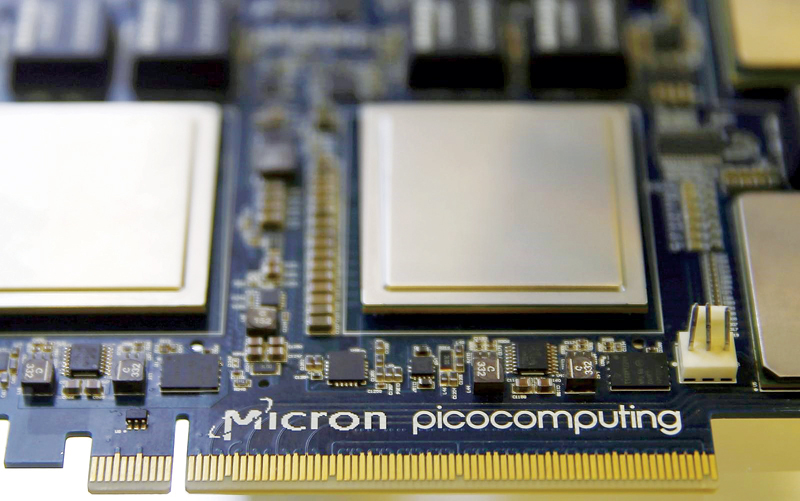

SEOUL: Memory chip spot prices have risen for the first time this year, indicating grim warnings of “never seen before” spikes and a supply disruption could come to pass as a dispute between South Korea and Japan drags on.
The 15 per cent spike in DRAM chip prices over a week — in a sector dogged by oversupply and weak demand for more than a year — comes after Japan tightened curbs on exports of some chipmaking materials to South Korea — home to the world’s top two memory chipmakers, Samsung and SK Hynix Inc.
To be fair, the price surge indicated by industry tracker DRAMeXchange refers to the spot market that accounts for less than a tenth of the memory chip landscape as most major tech firms source through mid- and long-term contracts.
Given this background, major customers such as iPhone maker Apple are yet to start stockpiling, but the price spike has started fuelling fears that Japan’s curbs will soon impact supply, several industry sources said.
“If the ban continues, memory prices will skyrocket like never seen before as 75 per cent of DRAM and 45 per cent of NAND global output is at risk,” Mark Newman from Bernstein said, referring to South Korea’s dominance in the supply of those memory chips.
A person at a South Korean chipmaker said customers were “following the situations closely” but “taking a wait-and-see approach as demand still remains weak”.
Samsung and SK Hynix declined to comment.
“We will need contingency plans if the impact materializes,” said a spokeswoman at Vaio, a Sony Corp spinoff.
“Options include seeking alternative chip suppliers outside South Korea,” she said, adding business at the Japanese computer maker had, however, not yet been hit. Taiwan Semiconductor Manufacturing Co Ltd , the world’s top contract chipmaker, warned that Japan’s export curb is the “biggest uncertainty” for the fourth quarter.
CONTINGENCY PLANS
Japan has tightened curbs on exports of three chipmaking materials — fluorinated polyimides, used in smartphone displays; photoresists, used to transfer circuit patterns on to semiconductor wafers; and hydrogen fluoride, used as an etching gas when making chips.
South Korea sourced 94 per cent of fluorinated polyimides, 92 per cent of photoresists and about 44 per cent of hydrogen fluoride from Japan in the first five months of this year, Korean industry data showed.
Seoul has said it is seeking to make its supply chain more independent and has been getting fresh offers from Russia and China to provide hydrogen fluoride.
A local media reported that South Korea was considering lowering import tariffs on these products from other countries to fill in any potential supply gaps.
“We... do see some (chip) module manufacturers raising their quotes or announcing halts to production in light of the material restrictions...,” research firm TrendForce said.
In NAND flash market, supply has also been hurt by an output halt at Japan’s Toshiba Memory last month due to a power outage.
A person at Toshiba Memory said the plant resumed operations in mid-July but it will take time for shipments to recover fully and that the company still has to catch up with existing orders.
Brokerage UBS said this week it expects NAND contract chip prices to fall 5 per cent in the third quarter, less than a previous forecast for a 10 per cent quarter-on-quarter drop, citing Toshiba’s output cut and Japan’s export curbs. But it kept its projection for a 17 per cent drop in DRAM contract prices unchanged. — Reuters
Oman Observer is now on the WhatsApp channel. Click here



